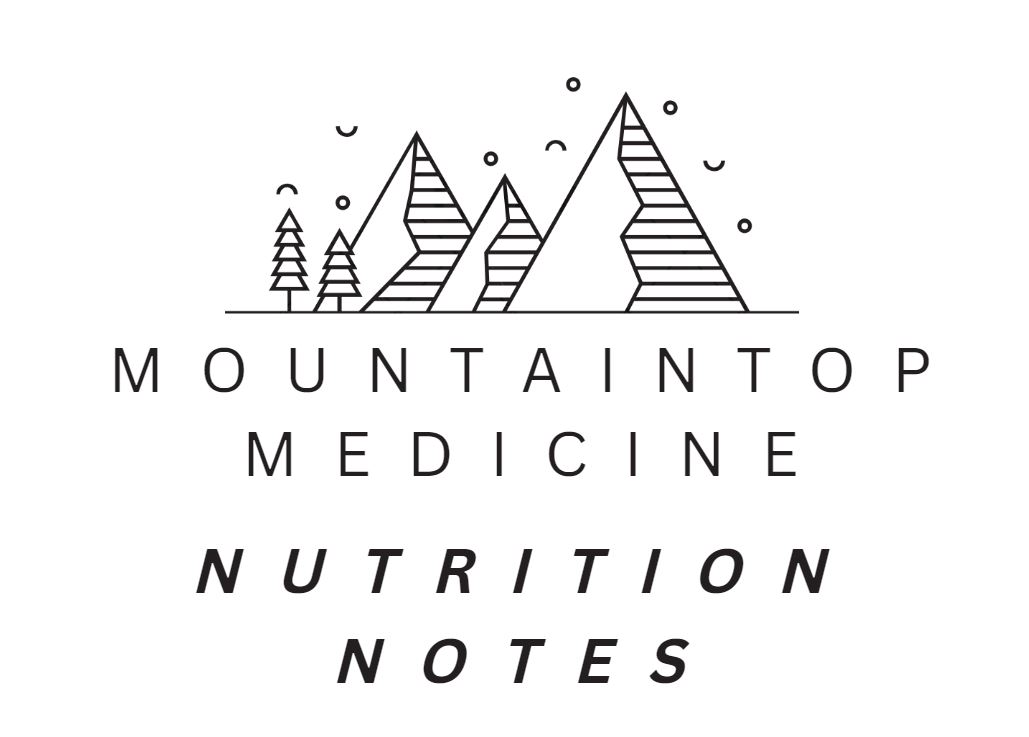Mountaintop Medicine: Nutrition Notes — Take a Hike!

Cheers to another edition of Mountaintop Medicine: Nutrition Notes! This week, I am discussing the great outdoors, and specifically how to properly fuel yourself when you explore it. Mapping out your nutritional needs is important- there’s plenty to consider besides simply grabbing a granola bar or a bottle of water.
Taking a hike has been proven to offer many benefits that you can’t experience from walking in a city or on a treadmill. Outdoor hiking leads to greater improvements in mood, feelings of calmness, and anxiety. It also aids in heart health and decreasing the risk for developing certain respiratory problems, improving sense of balance, and building lower body strength. Hiking is particularly helpful for older adults in maintaining mobility and preventing injuries as we age.Here are some important things to keep in mind next time you hit the trail:

Leah Gardner, EPH Registered Dietitian
Plan Ahead
You generally need a higher amount of food and water on activity-based excursions. Make sure to pack plenty of fluids, especially during hot weather adventures. Consider the length of your trip, what foods and beverages are reasonable to carry, how you’ll be eating and drinking, cooling options if necessary, and what food-related tools you may need.
Bring a Snack or Two
Depending on the length of your hike, having a snack along the way helps to fuel your body and maintain your energy levels. They help to prevent fatigue, headaches, fluctuations in blood sugar, and even muscle cramps while on the trail.
Our bodies prefer carbohydrates such as fruits and grains during hiking excursions because they are easier to digest than foods rich in fat and protein. This means they’re less likely to cause an upset stomach. If you are eating a source of fat and protein such as beef jerky or tuna, be sure to include a source of carbohydrates such a dried fruit or a granola bar for your body to use as a quick source of energy.
You can pack perishable foods, such as sandwiches, just be sure you have a cold source (such as an ice pack) to keep foods properly chilled to below 40°F. Opt mainly for non-perishable foods that are lightweight and nutrient-dense, such as:
• Trail mix
• Nuts, seeds, nut-based bars or nut butter packs
• Fresh, whole fruit that doesn’t require refrigeration such as apples, bananas and oranges
• Dried or freeze-dried fruits
• Energy bars, chews or gels
• Beef or poultry jerky
• Granola or granola bars
• Ready-made tuna salad pouches
Stay Hydrated
Pre-hydrate by drinking at least 4 cups (or 1 liter) of water before a hike so you have less to carry. Then, a good rule of thumb is to plan for about 2 cups (or 16 ounces) of water for every hour of hiking. Make sure you can bring or access clean drinking water with a portable water filter during your hike. Bringing along an electrolyte drink or powder on longer excursions will be helpful for maintaining proper hydration.
Camping and Multi-Day Trips
It can be more challenging to pack food for days at a time. The first day you may be able to eat perishable foods if bringing a cooler or ice pack is an option. After that, be sure to plan out your meals so you’ll have what you need. Otherwise, bring any of these shelf-stable, easily packed foods to sustain your trip:
• Easy-to-carry foods mentioned above
• Ready-to-eat cereal
• Fruit or vegetable puree in squeezable pouches (such as applesauce)
• Poultry or fish pouches, or canned fish, poultry or meat in individual servings
• Whole-grain pasta, couscous, rice mix, pancake mix, hot cereal, dried soups and dehydrated foods (if you can boil drinkable water)
• Individual packets of condiments such as mayo and mustard if necessary
• Bottled water or portable water filter
Considering your nutritional needs is important for setting yourself up for an amazing hiking experience. With some planning, it can be easy to properly fuel your trip!
If you have any questions or if there are any nutrition-related topics that you would like me to discuss here on Nutrition Notes, please reach out at LGardner@EPH.org.


